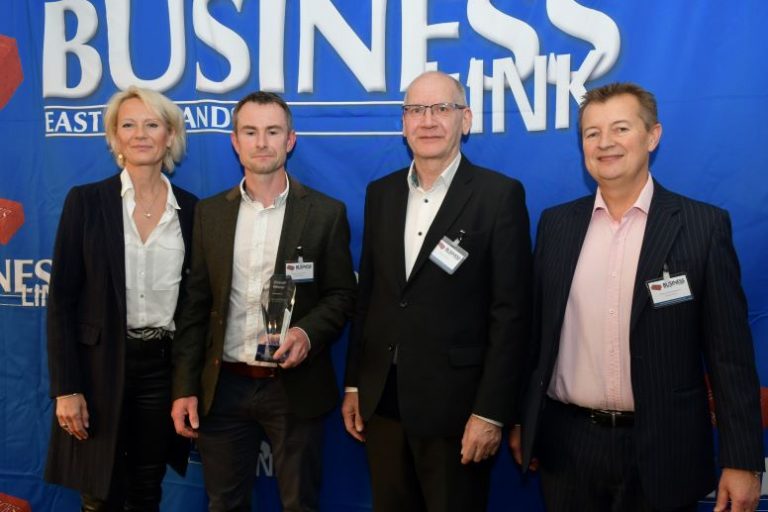EdTech specialist secures six-figure funding package
Oberoi Business Hub embarks on new phase of growth
30% rise in water demand strains Anglian Water’s supply capacity
Anglian Water, which serves a large part of the East of England, has seen a significant 30% increase in water demand during the recent heatwave. The company, which covers areas including Northamptonshire, Bedfordshire, Milton Keynes, and parts of Norfolk, Suffolk, and Essex, reported that typical daily usage of 1.1 billion litres has surged to 1.4 billion litres.
This increase, driven by the hot weather, is putting pressure on the water supply, with the company urging both residential and business customers to use less water to prevent shortages. While reservoirs are nearly 90% full, Anglian Water warns that excessive demand could lead to reduced water pressure in some areas. The company is proactively addressing the situation with a team of engineers ensuring infrastructure is prepared for the ongoing heat.
The company also recommended practical ways for customers to reduce water consumption, such as using rainwater for gardens and avoiding excessive use of hoses. While the company acknowledged the appeal of paddling pools, it advised customers to cover them overnight to conserve water for reuse. Despite the increased demand, Anglian Water has confirmed it will not impose a hosepipe ban at this time.
£13.5m partnerships deal to deliver 68 homes in Witham St Hughs
Technology, skills and infrastructure should be key priorities in Government UK and Midlands Industrial Strategy
East Midlands Bricks Awards 2025: “Recognition and endorsements of the quality of our work make all the blood, sweat and tears that go into development and construction, worthwhile”
To make a nomination for the East Midlands Bricks Awards 2025, please click here.
Supporting imagery, video, documents, or links to these, can be sent to bricks@blmgroup.co.uk. Video nomination pitches are also welcome as an alternative or companion to written entries. Categories include:- Contractor of the Year
- Developer of the Year
- Architects of the Year
- Most Active Agent
- Deal of the Year
- Residential Development of the Year
- Sustainable Development of the Year
- Commercial Development of the Year
- Excellence in Design
- Responsible Business of the Year
- Overall Winner
Nominations will close on Friday 15th August.
The East Midlands Bricks Awards 2025
What: The East Midlands Bricks Awards 2025 When: Thursday 2nd October (4.30pm – 7.30pm) Where: Derek Randall Suite, Trent Bridge Cricket Ground, Nottingham Keynote speaker: Councillor Nadine Peatfield – Leader of Derby City Council, Cabinet Member for City Centre, Regeneration, Strategy and Policy, and Deputy Mayor of the East Midlands Tickets: Available here Dress code: Standard business attire Thanks to our sponsors:











To be held at:
 With a limited number of sponsorship opportunities remaining, please contact Angie Cooper at a.cooper@blmgroup.co.uk to learn more if you are interested in becoming an East Midlands Bricks Awards 2025 sponsor.
With a limited number of sponsorship opportunities remaining, please contact Angie Cooper at a.cooper@blmgroup.co.uk to learn more if you are interested in becoming an East Midlands Bricks Awards 2025 sponsor. Council reverses adult education centre closures amid process concerns
Derbyshire County Council has partially reversed its decision to shut down seven adult education centres across the county, following criticism over the lack of transparency and consultation.
The initial plan would have seen the closure of centres in Wirksworth, Alfreton, Ashbourne, Matlock, Shirebrook, Long Eaton, and Glossop by the end of July. Course providers had already been instructed to vacate the premises before the announcement became public.
The move, which the council attributed to shifts in funding priorities from external education bodies, was not listed on the authority’s website and had not gone through any formal council committee process. The administration had originally framed the closures as building shutdowns rather than service cuts, yet offered no details on alternative locations or continuity of services.
This reversal comes amid mounting pressure to preserve community-based adult education offerings, which are widely regarded as a crucial component in upskilling local workforces and promoting economic participation. Questions remain about the future use of the affected buildings and whether services will be redistributed or centralised, with no official redevelopment plans currently disclosed. The situation continues to raise governance concerns for stakeholders monitoring the council’s decision-making regarding public education infrastructure.
Sadler Gate event offers boost for Derby’s independent retailers
Derby’s Sadler Gate is set to host its fourth annual street party on Saturday, 28 June, offering a day of free performances and pop-up activity aimed at driving footfall and local engagement. The event, scheduled from 11:00 a.m. to 4:00 p.m., is being organised by the Cathedral Quarter Business Improvement District (BID) in partnership with the Love Sadler Gate business group.
The initiative forms part of the BID’s wider summer activation strategy, highlighting the value of collaborative placemaking for city centre regeneration. It provides a platform for independent traders along Sadler Gate to showcase their offerings, with some shops planning flash sales and pop-up food stalls available on the day. Entertainment will include live music, street performers, and heritage talks, aiming to attract a broad cross-section of visitors.
The Celebrate Sadler Gate event, following a strong turnout in previous years, is positioned as a demonstration of the BID’s commitment to supporting local businesses and strengthening Derby’s high street resilience. It’s one of three summer activations announced by the Cathedral Quarter BID, alongside a Jurassic-themed family event in July and a street circus scheduled for August. The broader programme aims to enhance Derby’s appeal as a destination and promote ongoing investment in the city centre.
Work to begin on new community and business hub in Kimberley
After almost 60 years serving the residents of Kimberley, the Parish Hall, on Newdigate Street, is to be demolished in the next few weeks and will be replaced by a new Community and Business Hub.
Builders, T&C Williams, will take over the site on Monday 23 June, and it is hoped that the new building will be completed by May 2026.
The building, designed by Julian Owen Associates Architects, will be a modern, 3-floor, multi-functional building. It will include affordable office space to support local small or start-up businesses, a function room for weddings, seminars and community events, a community studio room, and new facilities for the Town Council.
The mayor of Kimberley, councillor Tony Mason, said: “This is a really exciting time for Kimberley and this building will be a financial asset to the community at large. The opportunity to host local events and bring income into the town through seminars, conferences and other functions is the aim of our motivated and enthusiastic councillors and the Council team.” Leader of Broxtowe Borough Council and portfolio holder for economic development and asset management, councillor Milan Radulovic MBE said: “This is a really significant stage in our investment plans for Kimberley and will provide facilities for the local community and businesses to use to help bring more people into the town. “This milestone has been reached thanks to Broxtowe Borough Council’s excellent partnership with Kimberley Town Council and our shared ambitions to improve the town for future generations.”Gen H and Nottingham Building Society extend mortgage funding partnership
Fintech mortgage lender Gen H has extended its forward-flow funding agreement with Nottingham Building Society (NBS), continuing a partnership that began in 2022. The deal allows Gen H to access long-term funding for its home loan products, underpinned by NBS’s institutional capital.
To date, the collaboration has delivered around £1 billion in funding and supported approximately 5,000 homebuyers. The renewed agreement enables Gen H to maintain its lending momentum and reinforces its position in the UK mortgage market.
The partnership combines Gen H’s tech-enabled mortgage platform with NBS’s financial stability and lending heritage, creating a scalable model for both innovation and growth in the residential lending sector. The deal reflects the growing trend of collaboration between traditional financial institutions and fintech lenders as a way to meet evolving borrower expectations and capital demands.












